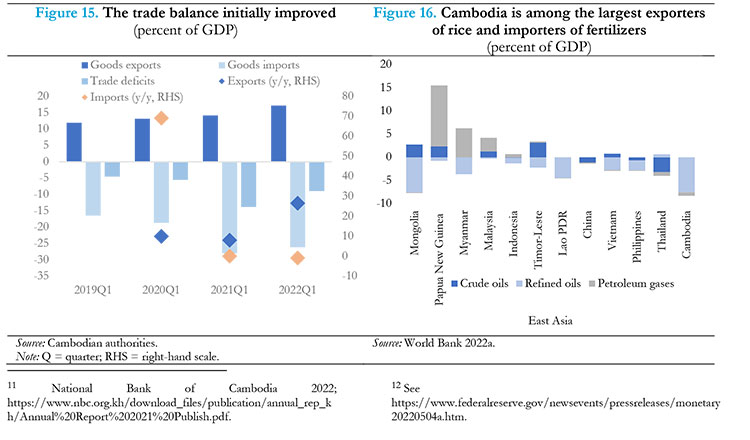Cambodia: World Bank says Kingdom’s investment law may help improve worker productivity
The new Law on Investment introduced by Cambodia may help improve worker productivity, given the incentives it offers on the provision of skills training, housing, nurseries, health facilities, and transportation services to workers, the World Bank said in a report.
In its ‘Cambodia Economic Update June 2022,’ the bank said, “The main policy measures introduced by the authorities to diversify exports are the newly introduced Law on Investment and recently launched Economic Recovery Plan (ERP) for 2021–23. The new Law on Investment may help improve worker productivity, given the incentives it offers on the provision of skills training, housing, nurseries, health facilities, and transportation services to workers.”
It pointed out that the incentives provided to research, development, innovation, and machinery modernisation may also promote new technology adoption and transfers.
“The ERP aims to build the foundation for economic growth, targets diversification and competitiveness, while further deepening investment climate and doing business reforms,” the bank said.
It also pointed out that despite an anticipated slowdown in global demand, Cambodia’s merchandise exports accelerated further. “During the first quarter of 2022, goods (excluding gold) exports rose to $4.8 billion, growing at 26.5 percent year on year, surpassing its pre-pandemic growth rate, which peaked at 25.5 percent in January 2020. The manufacturing exports of the top three items, which are garment, travel goods, and footwear (GTF) products, reached $3.1 billion, or a 25.2 percent increase.”
It also said the prospects of garment orders remain strong until the end of the year.
“Reflecting initial success in diversifying product exports, the share of the GTF product exports noticeably declined to 64.5 percent of total merchandise exports in 2022, down from 77.6 percent in 2019,” the report mentioned.

The bank said exports of non-GTF manufacturing products, which include bicycles, vehicles, and electronic parts and cables, also accelerated, reaching $426 million, or a year-on-year increase of 48.4 percent. Its share rose to 9 percent of total goods exports in 2022, up from 5.8 percent in 2019. Exports of agricultural commodities, which mainly include rice, rubber, banana, and sugar, accounting another 9 percent of total goods exports, reached $331 million.
Garment exports remained Cambodia’s largest export item. Garment exports reached $2.1 billion, or a 20.4 percent year-on-year increase during the first quarter of 2022.
“Despite its accelerated growth rate, garment exports no longer account for the majority of goods exports. Its share declined from 60 percent in 2019 to 44.4 percent of total goods exports in 2022. Exports of travel goods surpassed those of footwear products and became the second-largest item, accounting for $468 million (9.7 percent of total goods exports), with a whopping y/y rise of 46.5 percent, followed by exports of footwear products, which reached $421 million (8.8 percent of total goods exports) or a 33.2 percent y/y increase.”
It said there has been only a marginal increase in the minimum wage to $194 a month in 2022, up from $192 a month in 2021. The marginal increase helps support Cambodia’s external competitiveness during the time of Covid-19, the report pointed out.
The bank said the country’s merchandise exports to the United States continued to surge. Goods exports destined for the US market reached $2.1 million, with a whopping year-on-year rise of 43.7 percent during the first three months of 2022.
Source: https://www.khmertimeskh.com/501105753/world-bank-says-kingdoms-investment-law-may-help-improve-worker-productivity/


 English
English




